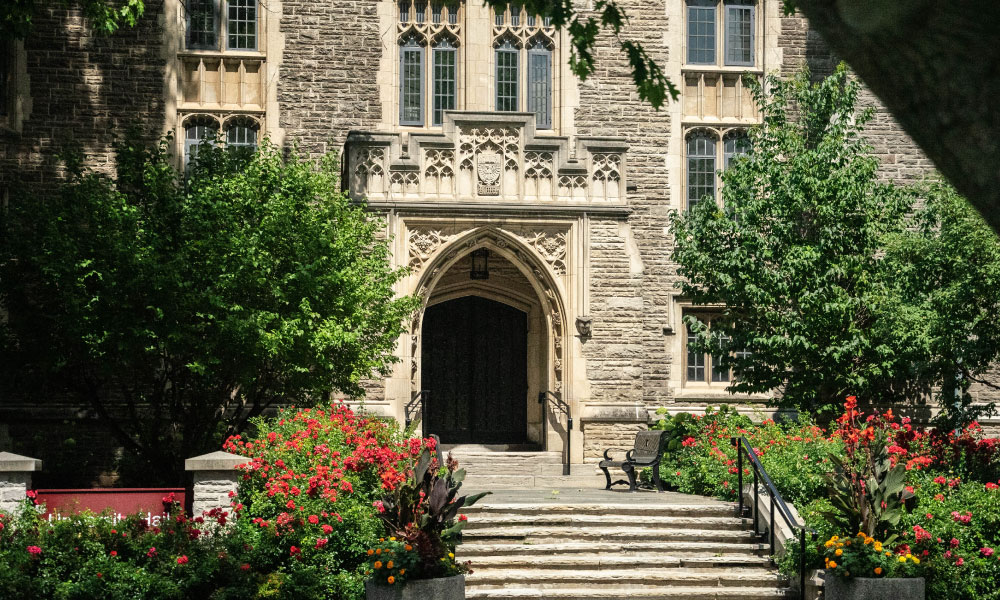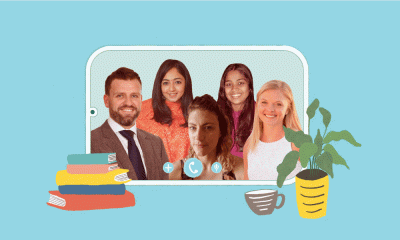Education
The Trap Year: Indian Students Are Changing Where They Choose to Study Abroad
'Even U.S. students are looking at European colleges.'
the world’s biggest higher education market i.e. the United States is struggling with COVID-19. From touching record highs in international enrolment in 2019, to a potential loss of nearly $5 billion USD, the picture is getting bleaker by the month.
Close to the fall semester, the opening of schools and universities is still up in the air, with Harvard and MIT having sued their government over an order to stop in-person classes for international students. Many are still undecided on virtual versus in-person classes, but the tuition costs at the universities remains unchanged.
To forecast the future of higher education and understand its impact on students, educators and universities, Re:Set asked education experts to weigh in on the future of the industry and how the pandemic will impact various facets of the college experience and a student’s life. In the final instalment of a three-part series titled ‘The Trap Year,’ we spoke with Akshay Chaturvedi, Founder and CEO of Leverage EDU, one of India’s biggest mentorship and career advice platforms, helping students make decisions about their education abroad.
How is COVID-19 changing which countries students go to pursue higher education?
A lot of media attention towards higher education has been U.S. focused, that their private schools and colleges are struggling. The other 95% of the higher education system works differently.
For example, in Canada and the U.K. even the best institutes like London School of Economics cost one-third of what most Ivy League schools charge. Many have increased the number of scholarships they provide. With time, the U.S. institutes are going to realize that they’re too expensive, and are going to start offering distance education as a cheaper alternative to access the same brand name.


Photo courtesy: Akshay Chaturvedi
So are students taking advantage of this fact? How is this impacting enrolments?
An interesting recent development was that a large number of Indian flight operators have increased flights to New Zealand because a large number of Indian students are going there. Especially as it’s seen as a COVID-19 free country. Even U.S. students are looking at European colleges, more so with policies like the post-study work visa being introduced in the United Kingdom. Students can stay back there for a longer time.
All these factors, accelerated by COVID-19, are going to alter student mobility trends in favour of those countries which are adapting quickly like the U.K., Canada, Australia, France and Germany. We’re seeing revenue surging in our business with people showing more and more interest in studying in the U.K.
Does this mean universities will become cheaper?
I think it will reduce with time, but it’s not happening right now. What we’re seeing are concessions being made for students with scholarships. There are schools in Canada, the U.K. and Australia which are giving scholarships to every student. This means that universities are trying to figure if giving these scholarships results in them getting more students. If this works, then we might see reduced fees from next year itself.
If and when it does become cheaper, will online learning then have a trickle down effect in aiding students from marginalized communities get access to better education?
I’m not sure if online learning is going to have a massive trickle down effect to marginalized communities. Education is not only about access.
Before my current job, I worked with another startup which was eventually acquired by Quikr. For one project, we partnered with Google and provided free internet at eight railway stations in India. We thought this was going to change things, but we found that people kept accessing adult content, and not educational or job portals. We haven’t seen even a free lecture video get seven million views. People dancing on TikTok get that.
Education can’t be just about access. It’s accessibility, in addition to a regulated environment, around it which promotes education. Opening a small school in a marginalized community is a better model in my opinion than giving just free internet access.
Also read: The Trap Year: How Student Behaviour Post-COVID Will Impact Teachers

























